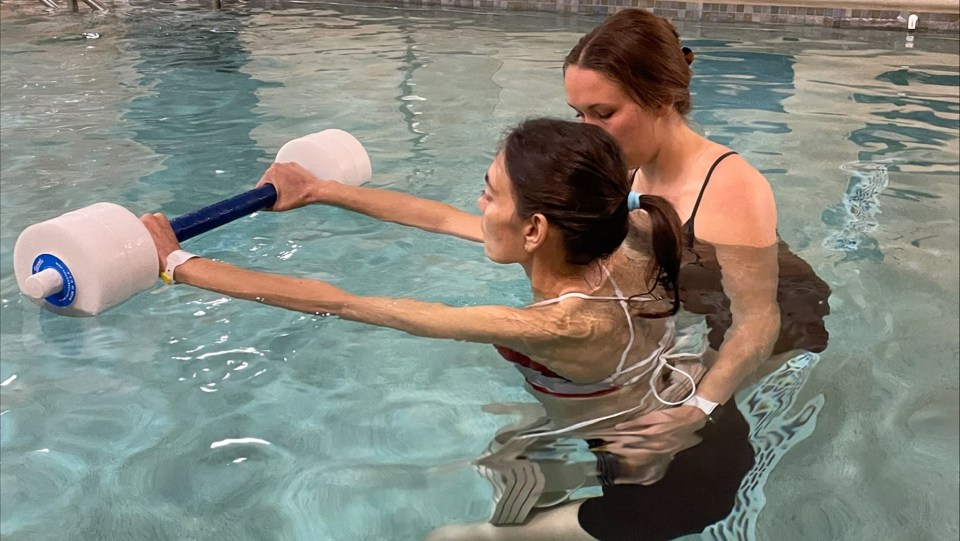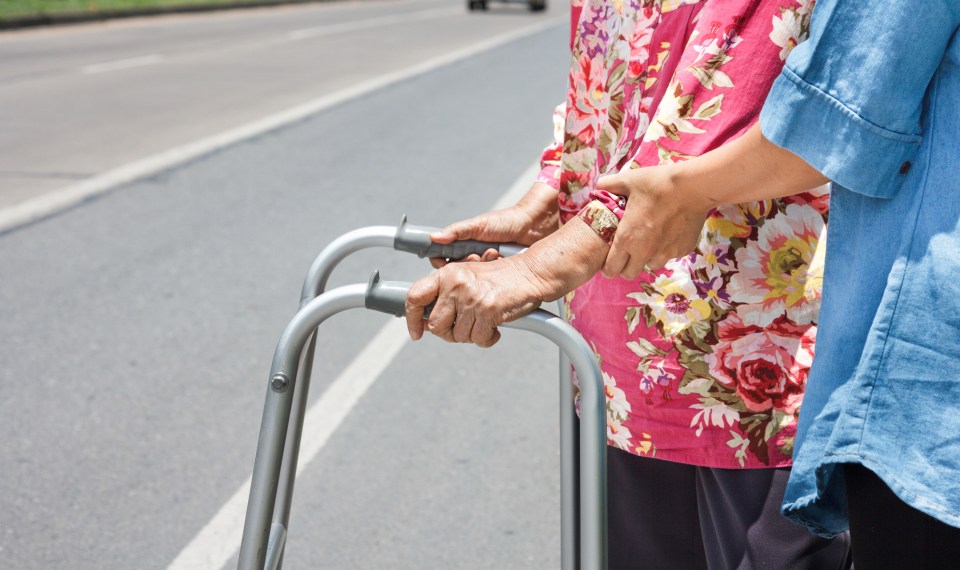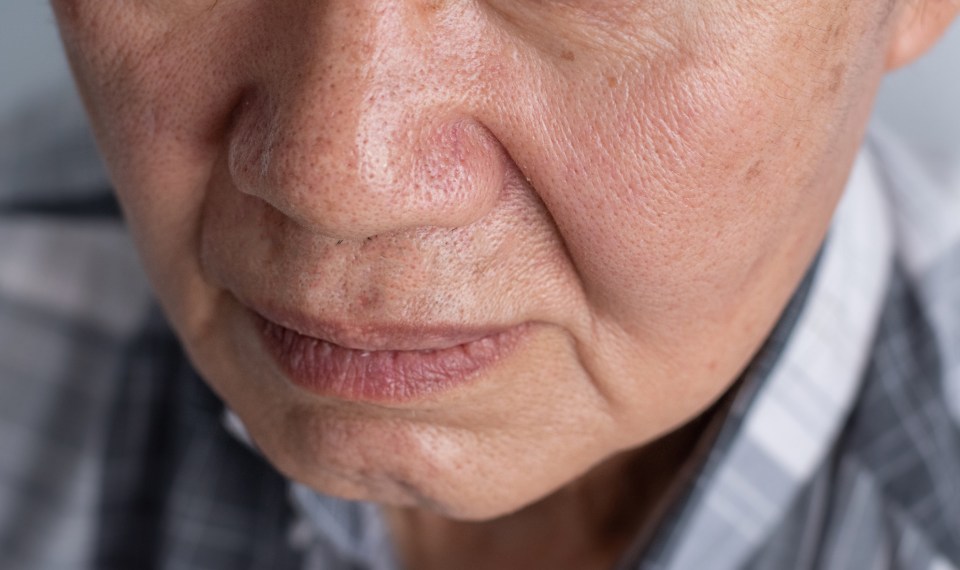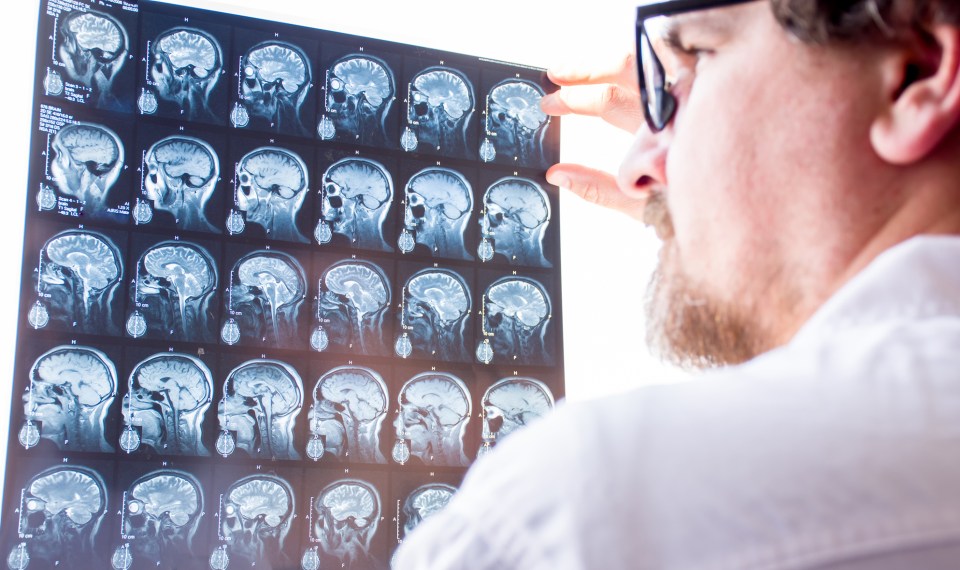As a commercial construction worker in Tucson, Arizona, Valerie Keller was constantly on her feet, moving and working with her hands. She described herself as muscular and strong. However, in the span of just a few weeks, she went from being an active 35-year-old to barely being able to move.
Keller was diagnosed with atypical Guillain-Barré Syndrome. The rare neurological condition causes sudden paralysis. Over the span of few weeks, she gradually lost almost all her mobility. “Basically, I was just laying in a bed without moving,” she recalled.
After about two weeks in the hospital, Keller was admitted to Encompass Health Rehabilitation Hospital of Northwest Tucson. For the first time in weeks, Keller said she was encouraged that she would in fact walk again and return home to her fiancé and senior dog, but it would take intensive therapy and care to help get her there.
A Rare Diagnosis of Atypical Guillain-Barré
It started as an intense headache. Keller described it as feeling like a hot poker piercing her brain. At first, she assumed it was a migraine, but it continued for several days. Then she began experiencing weakness in her upper arms. She realized it was something more serious; her doctors agreed, but they were unsure what was causing her symptoms.
“I had the headaches for four or five days,” Keller recalled. “I went to the hospital and had an MRI and CTC, but they couldn’t figure out the problem. Things were getting hard to do, and the weakness in my upper arms was slowly working its way to my legs. In like a week, it slowly took over my whole body.”
After collapsing in the middle of the night, unable to get up, she was admitted to the hospital. Her doctors were still perplexed by her condition, so her neurologist ordered a spinal tap. Keller had atypical Guillain-Barré syndrome (GBS), even rarer than the typical version, which according to the CDC, only about 3,000 to 6,000 people are diagnosed with in the U.S. each year.
Her form of GBS is considered atypical because it started in the upper part of her body, instead of the lower half.
Keller remembers being relieved to have a diagnosis but also frightened by its rareness. She didn’t know what Guillain-Barre´ was, much less what it meant to have an atypical case.
“I wasn’t able to accept it. It’s so rare; I had to question, ‘why me,'” she said. “It was just very, very scary because I was a strong, hardworking, capable person, and all of a sudden I was paralyzed. I literally couldn’t hold myself up. It was very depressing. I was depressed.”
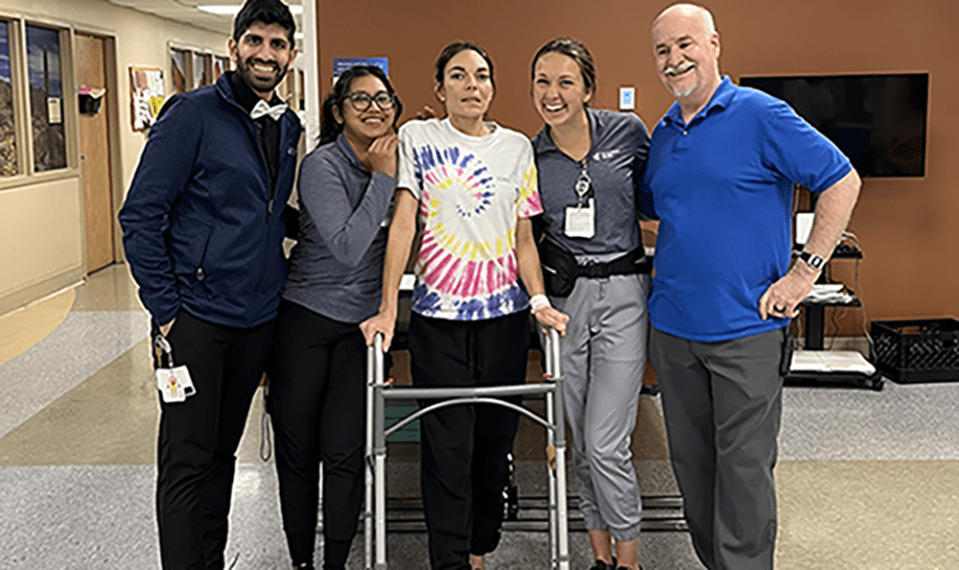
Choosing the Next Step in GBS Recovery
Keller and her fiancé were unsure of what recovery could and should look like for this rare disease. They learned that most cases of GBS have a good prognosis and the paralysis is temporary, but knowing she was not ready to go home, they weren’t sure what their next step in recovery should be. Her fiancé sought the advice of her neurologist.
“My fiancé advocated for me because I was so sick,” Keller said. “The neurologist said I was going to need intensive therapy. The first question my fiancé asked was, ‘If this was your son or daughter, where would you send them?'”
His answer: Encompass Health. There she would receive a minimum of three hours of therapy a day, five days a week. Coupled with the fact that the Northwest Tucson location was just three miles from the couple’s home, Keller said it was an obvious choice.
When Keller arrived at the rehabilitation hospital, she couldn’t walk and could move her arms some, but not enough to function. She was also experiencing facial paralysis, making it difficult to talk or swallow. She began therapy almost immediately, receiving a combination of speech, occupational and physical therapies. She also had 24/7 nursing care and frequent physician visits to help her with her medical needs.
A Unique Care and Therapy Plan
With limited mobility and strength, Keller struggled with some of her therapy at first, but she was determined to get home and back to her active life. Her care team was determined to help her get there.
“I had no function whatsoever in my legs and arms,” Keller said. “I tried using some of the equipment in the gym, but I was just so weak. That’s when my therapist suggested pool therapy.”
Keller took to the hospital’s pool performing lunges, walking and more. The aqua therapy helped her build up her strength enough to perform more weight-bearing exercises in the gym.
In addition to physical therapy to regain movement, her speech therapists worked with her to help her improve her communication and pronunciation. “I could talk, but it was very, very hard,” Keller said. “When I first got there, you couldn’t tell the difference when I asked for ‘butter’ versus ‘water.’ My speech therapists were extremely helpful.”
Her occupational therapists worked with her to help her navigate her home. They provided a home assessment to ensure she could navigate her living space with any assistive devices she might need.
Returning Home
After a little over a month at Encompass Health Northwest Tucson, Keller was walking with the assistance of a cane and was able to achieve her ultimate goal of returning home to her fiancé and senior dog. She is continuing her therapy at home. She said the care she received at Encompass Health pushed her through her depression, and got her back closer to her life prior to her atypical Guillain-Barré diagnosis.
“It makes me want to cry how they pushed me and told me I could do it,” she said. “They always encouraged me. When I would thank them, they would say it was me doing all the work. I told them I did 80% of it, but I couldn’t have done any of it without them.”
The content of this site is for informational purposes only and should not be taken as professional medical advice. Always seek the advice of your physician or other qualified healthcare provider with any questions you may have regarding any medical conditions or treatments.
